| Prof. Xiaodong Chen Nanyang Technological University, Singapore https://dr.ntu.edu.sg/cris/rp/rp00467 |
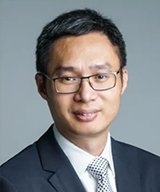 |
Xiaodong Chen is the President's Chair Professor in Materials Science and Engineering at Nanyang Technological University, Singapore (NTU). He is the Director of Innovative Centre for Flexible Devices at NTU and the Director of Max Planck – NTU Joint Lab for Artificial Senses. Chen's research focuses on developing soft materials for the applications in flexible devices, energy storage, and healthcare. So far, he has published over 280 high profiled articles in Nature Nano, Nature Electronics, Nature Chemistry, Advanced Materials, etc. His research work was highlighted by more than 100 local and overseas'media. Chen's achievement on generating industrial impact is evident from his more 50 granted patents, 9 of which had been licensed for commercial development, and more than 5 projects with industry. He has been elected as a Fellow of the Academy of Engineering Singapore and a Fellow of Royal Society of Chemistry in UK. Since 2021, Chen has served as the Editor-in-chief of the ACS Nano. |
|
| Prof. Ali Dhinojwala The University of Akron, USA https://blogs.uakron.edu/dhinojwala/ |
.jpg) |
|
His group has developed unique surface technique to study buried polymer interfaces. His recent interest is in understanding how geckos and spiders use adhesives for locomotion and prey capture. These studies have led his team to develop synthetic adhesives using aligned carbon nanotubes. His latest passion is on developing structural colors, a strategy inspired by bird colors.
Dhinojwala’s research is focused in the area of interfacial science. His group is using infrared-visible sum-frequency-generation spectroscopy (SFG) techniques to study fundamental problems in adhesion, wetting, and friction. They have developed approaches to couple SFG and mechanics together to relate macroscopic properties such as adhesion and friction with the structure and dynamics of interfacial molecules. His group is applying this fundamental knowledge of interfacial science to design new materials inspired by nature. His group works on gecko adhesion, spider silk, mussel adhesion, and structural colors inspired by birds and other organisms. His research work is supported by National Science Foundation, Air Force Office of Scientific Research, and Industries. |
|
| Prof. Peter Fratzl Max Planck Institute of Colloids and Interfaces, Germany https://www.mpikg.mpg.de/biomaterials |
.jpg) |
|
|
|
|
Prof. Huajian Gao |
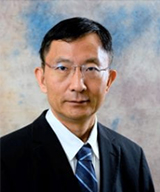 |
|
|
|
|
Prof. Stanislav Gorb |
.jpg) |
|
|
|
| Prof. Zhiwu Han Jilin University, China http://cbae.jlu.edu.cn/info/1221/3283.htm |
.jpg) |
|
|
|
| Prof. Lei Jiang Technical Institute of Physics and Chemistry, CAS, China Beihang University, China |
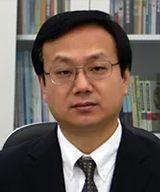 |
Lei Jiang is a Professor at the Technical Institute of Physics and Chemistry, CAS and Beihang University. He is an academician of the CAS, Academy of Sciences for the Developing World, and National Academy of Engineering, USA. His scientific interests focus on bio-inspired, smart, multi-scale interfacial materials with superwettability. Jiang has discovered and established the basic principle of the interfacial material systems with superwettability and extended them to successful innovative applications. Jiang’s achievement in research and innovation was recognized nationally and internationally with many awards, namely the TWAS Prize in Chemistry (2011), the Advanced Science and Technology Award of the Ho Leung Ho Lee Foundation (2013), the Outstanding Achievement Award of the CAS (2014), UNESCO Medals for contributions to the development of nanoscience and nanotechnologies, and the Nikkei Asia Prize (2016), the Humboldt Research Award in Germany (2017), and the Qiu Shi Outstanding Scientist Award and Nano Research Award (2018). In 2020, he won the ACS Nano Lectureship Award. |
|
| Prof. He Liu Research Institute of Petroleum Exploration & Development, PetroChina |
 |
Prof. Liu has long been engaged in technology innovation and engineering management of oil production engineering. In the context of increasingly complex conflicts in oil and gas field development, he proposed the discipline development direction of "petroleum engineering bionics", and established China's first petroleum engineering bionics research department in 2009, specializing in the application of bionics in petroleum engineering. For the past years, Prof. Liu has won one Special-class award and three Second Class Prize for National Prize for Progress in Science and Technology, one Second Class Prize for National Award for Technological Invention, Sun Yueqi Energy Award and Guanghua Engineering Science and Technology Award. He has more than 100 published papers and 24 authorized invention patents to his credit. Due to his great contribution in the field, Prof. Liu was elected as an academician of the Chinese Academy of Engineering in 2017. |
|
| Prof. Jingnan Liu Wuhan University, China |
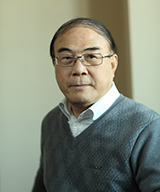 |
Prof. Jingnan Liu is a member of Chinese Academy of Engineering. He has long been engaged in research and teaching in geodetic surveying, and has been considered a pioneer in the application of GNSS technology. Prof. Liu was the President of Wuhan University (2003-2008) and the editorial board member of the top journal GPS SOLUTIONS (1998-2001). He is now the President of Duke Kunshan University, the director of Research Center of National Satellite Positioning System Engineering Technology, member of Science and Technology Commission under the Ministry of Education, standing member of Chinese Society for Surveying and Mapping, editorial board member of GPS WORLD, etc. He was selected as the 11th CPPCC member. Prof. Liu has taken part in a number of research programs to promote the application of satellite positioning system in China. As academic authority in GPS field, he has won a number of national and provincial awards and titles. He has published more than 200 academic papers and supervised more than 110 postgraduates. |
|
| Prof. Sheng Liu Wuhan University, China |
 |
Prof. Sheng Liu is an IEEE Fellow, an ASME Fellow, an Associate Editor in Engineering Sciences of Science Bulletin, an associate editor in Microsystems & Nanoengineering, and an IEEE Fellow Transactions on Components Packaging and Manufacturing Technology (IEEE Electronic Packaging and Manufacturing Technology Deputy editor, chief scientist of Wuhan Feien Microelectronics Co., LTD., chief scientist of Hefei Archimedes Electronic Technology Co., LTD., Council member of Hubei Province Non-Party Intellectual Association. Professor Sheng Liu is an outstanding expert in the field of electronic packaging science and technology. He has been engaged in the research of integrated circuit, LED and micro-sensor packaging and reliability theory and frontier technology for a long time, and has made systematic original research results. He has published more than 350 SCI papers, cited more than 7500 SCI papers, co-published 6 monographs (4 in English), authorized 176 invention patents, and has been widely cited by famous scholars from more than 30 countries (including more than 70 international society members and more than 10 academicians from China and the United States). He has won the second prize of the National Technology Invention Award, the first prize of the Ministry of Education Technology Invention Award, the First Prize of the National Science and Technology Progress Award in 2020, and many other domestic and foreign awards. |
|
| Prof. Lei Ren University of Manchester, UK Jilin University, China |
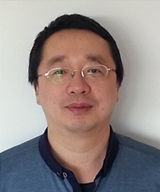 |
Prof. Lei Ren researches in the field of biomechanical engineering and bionic healthcare by exploring the fundamental musculoskeletal, neuromuscular and sensorimotor principles underlying human movement, whilst developing bioinspired healthcare robotics and devices, and innovative bionic soft actuation and sensing techniques based on the learnt biological principles. He has been the PI and Co-I of over 30 research projects funded by UK EPSRC, BBSRC, NSFC and MoST, and has over 180 peer-reviewed journal papers published in PNAS, Advanced Functional Materials, IEEE Transactions on Biomedical Engineering, IEEE Transactions on Neural System and Rehabilitation Engineering etc., and has been awarded over 120 patents. His research works have been reported by Nature, Science News, Wired, Telegraph, Science Daily and BBC etc. He is the Deputy General Secretary of the ISBE, sits in the Council of Chairs, Biomedical Engineering Society (BMES), and serves as the General Secretary of IFToMM UK. He is the associate editor-in-chief of Journal of Bionic Engineering, the associate editors of Frontiers in Bioengineering and Biotechnology, Journal of Mechanical Engineering Science. |
|
| Prof. Zuankai Wang The Hong Kong Polytechnic University, Hong Kong, China https://www.polyu.edu.hk/me/people/academic-teaching-staff/wang-zuankai-prof/ |
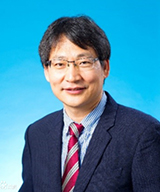 |
Professor Zuankai Wang received his B.S. degree from Jilin University in 2000, M.S. degree from Shanghai Institute of Microsystem and Information Technology, Chinese Academy of Sciences, in 2003, and Ph. D. degree from Rensselaer Polytechnic Institute in 2008. After one-year postdoc training at Columbia University, he joined the City University of Hong Kong (CityU) in September 2009 and became a Chair Professor in July 2021. He was the Associate Dean in the College of Engineering (2019-2022) and the founding Deputy Director of Research Center for Nature-inspired Engineering (2021-2022) at CityU. He serves as the Executive Editor-in-Chief of the journal, Droplet (Wiley), and associate editor and advisory board member for more than 10 journals. He is a founding member of Hong Kong Young Academy of Sciences, a Fellow of International Society of Bionic Engineering (ISBE). His work has been recognized by the Guinness Book of World Records and his innovations have won the International Exhibition of Inventions of Geneva Gold Medal with Congratulations of Jury and Gold Medal. He has received many awards including the RGC Senior Research Fellow (2022), Green Tech Award (2021), Xplorer Prize (2020), Hall of Fame (Advanced Engineering Materials, 2019), 35th World Cultural Council Special Recognition Award (2018), President's Lectureship (2020, 2018), Outstanding Research Award (Senior, 2017), President's Award at CityU (2017, 2016), Changjiang Chair Professor by Ministry of Education of China (2016), Outstanding Youth Award conferred by ISBE (2016), Chinese Government Outstanding Self-Financed Students Abroad Award (2007), and Materials Research Society (MRS) Graduate Student Silver Award (2007). The Ph.D. students he supervised have won a number of prestigious awards including MRS Graduate Student Gold Award (2016) and Silver Award (2015, 2021), Hiwin Doctoral Dissertation Award (2016, 2019, and 2021), Hong Kong Young Scientist Award (2015, 2019). |
|
| Prof. Shuhong Yu University of Science and Technology of China http://staff.ustc.edu.cn/~yulab/windex.html |
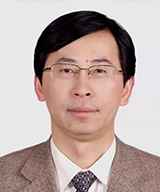 |
Shuhong Yu is a professor at the University of Science and Technology of China and serves as the Director of the Division of Nanomaterials and Chemistry, Hefei National Laboratory for Physical Sciences at Microscale. From 1999 to 2001, he worked in Tokyo Institute of Technology as a Postdoctoral Fellow, and was awarded the AvH Fellowship (2001-2002) in the Max Planck Institute of Colloids and Interfaces, Germany. He is the Editor-in-Chief of Materials Chemistry Frontiers, and was a senior editor for Langmuir from 2017 to 2020, and an associate editor for Science China-Materials and EnergyChem. His research interests include bio-inspired synthesis of inorganic nanostructures, self-assembly of nanoscale building blocks, nanocomposites, their related properties and applications. His research work has been cited more than 61,600 citations (H index 137), named as a Highly Cited Researcher from 2014 to 2020. He was elected as Academician of Chinese Academy of Sciences in 2019. |
|

